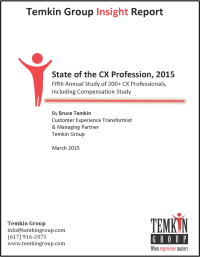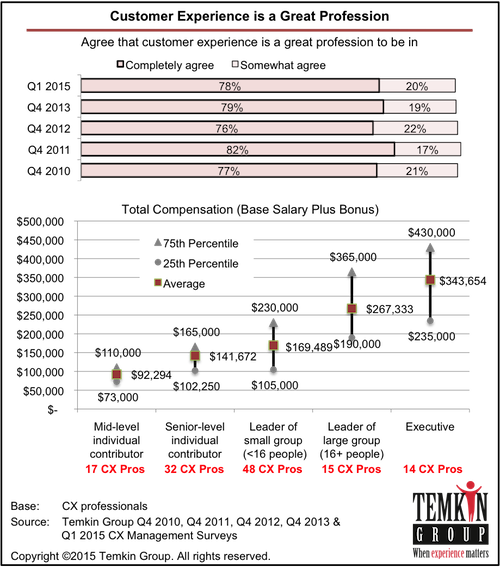Report: State of the CX Profession, 2015
March 30, 2015 Leave a comment
 We just published a Temkin Group report, State of the CX Profession, 2015. This is the fifth year that we’ve examined the roles of CX professionals and the second year that we’ve done a compensation study. Here’s the executive summary:
We just published a Temkin Group report, State of the CX Profession, 2015. This is the fifth year that we’ve examined the roles of CX professionals and the second year that we’ve done a compensation study. Here’s the executive summary:
To better understand the mindset and roles of CX professionals today, we surveyed 270 CX professionals and then compared their responses to similar studies we conducted over the previous four years. Although 98% of respondents believe that customer experience is a great profession to work in, these professionals feel less appreciated than they did last year. Web interactions and voice of the customer programs continue to be key areas of responsibility for these professionals, and respondents expect spending on and hiring for CX activities to grow in 2015, with voice of the customer software vendors enjoying the most positive momentum. On this year’s survey we included our second annual compensation study. We examined 126 CX professionals from large organizations and found that their average compensation (salary plus bonus) ranged from $92,000 for mid-level individual contributors to $344,000 for CX executives.
CX continues to be a great profession….
The bottom line: The CX profession is thriving.

